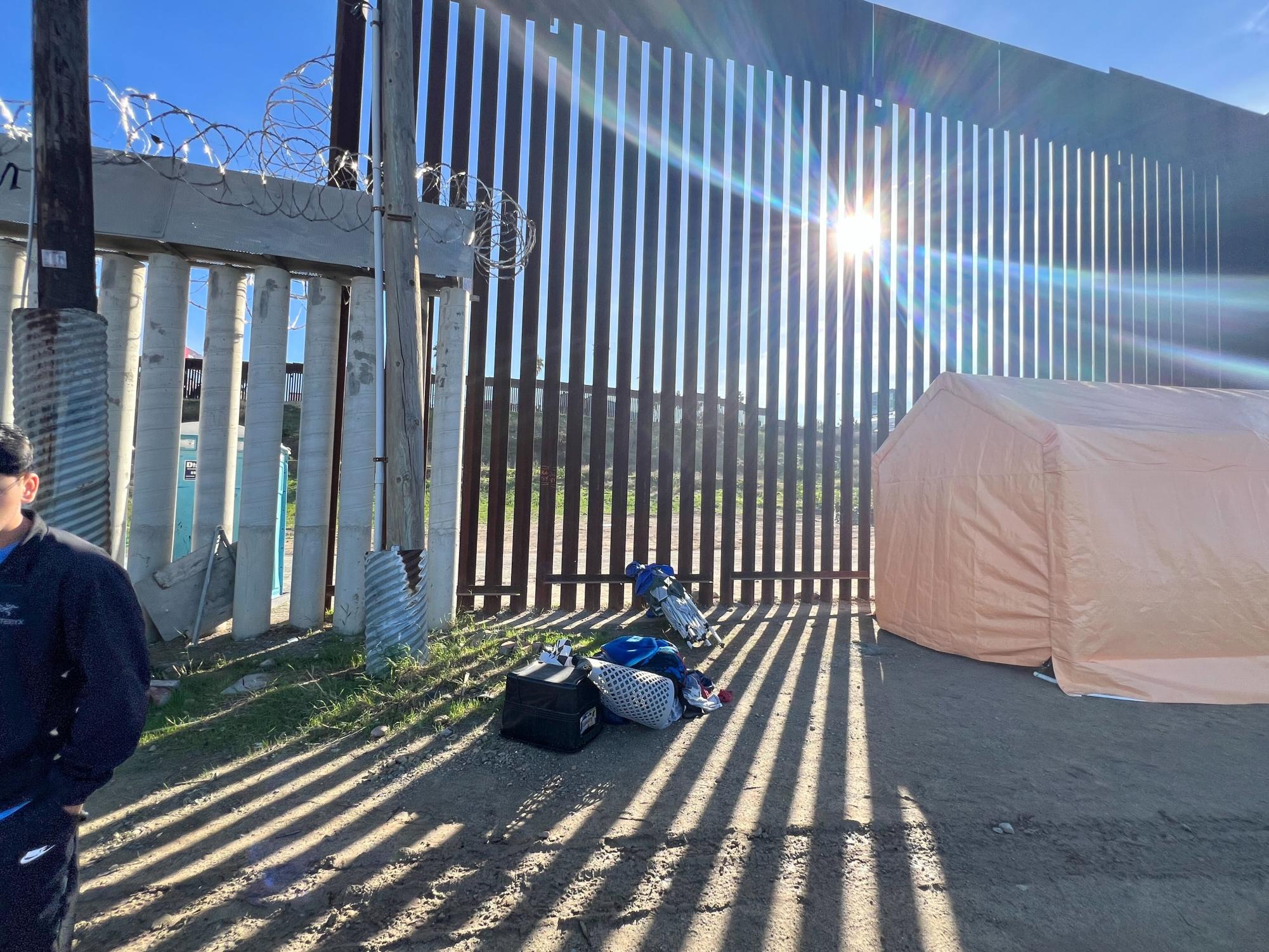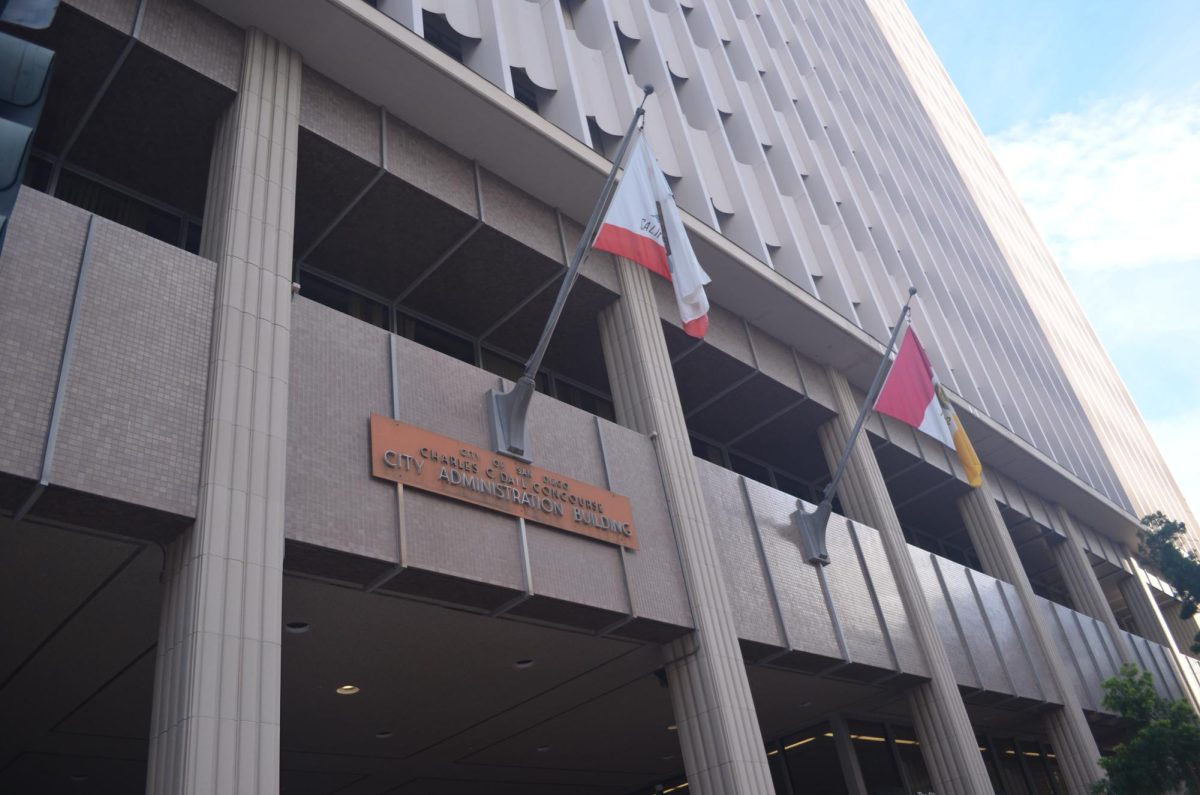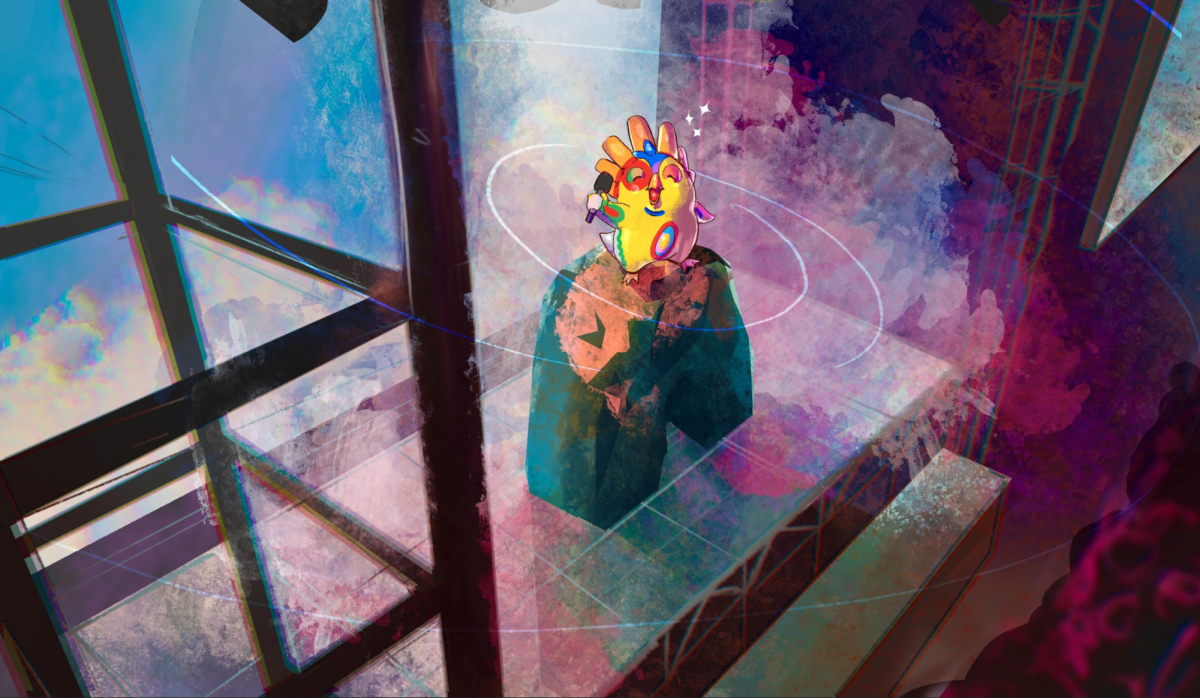Editor’s note: Interviewees were granted anonymity via pseudonyms due to safety and legal concerns.
After Trump’s election in 2016, his campaign promise to implement harsher immigration policies came to fruition. The Democratic Party rightfully pushed back on the mistreatment of migrants at the border, blasting the former president for the separation of children and their parents upon arrival. Yet, conditions under the Biden administration remain the same, if not worse, and that pushback from the Democratic Party is nowhere to be seen. Instead, right-wing media coverage has portrayed this crisis as an invasion of undesirables and criminals, weaving a sensationalized narrative that has yet to be addressed by prominent Democratic politicians and the mainstream press.
Around two million migrants entered through the U.S.-Mexico border in 2023, 200,000 through the San Diego-Tijuana corridor alone (Customs and Border Patrol). As global poverty and conflict sees no end in sight, more and more people have been making the dangerous trek to the United States, reaching record-breaking numbers as of late. A ragtag group including my translator Valeria, my producer Firas, and my videographer Thunder, were able to locate and access sensitive locations with just a car and a camera. My team and I wanted to see the conditions in which people were making the arduous journey for a better life. Just 20 miles south of UC San Diego, we witnessed a political crisis unfold with our own eyes.
Behind a water reclamation plant in San Ysidro, the formidable presence of the border wall became evident. The wall had two layers, one for the international border and another within the United States. For up to 48 hours, recently arrived migrants stay in open-air conditions between these two border walls, only having access to food, water, and other necessities via the generosity of the volunteers.
“These [a——-] [CBP] will say that there is no open-air detention,” one volunteer said. “Where the [f—] can they go? Really? They don’t give them food. They don’t give them water. They leave them here just like this.”
The loose collection of volunteers from several non-governmental organizations made it abundantly clear that the government was no help.
I talked to a man from Eritrea, Ali, who had just arrived earlier in the day. Fleeing war as a student in Sudan, he flew to Brazil. On foot, he made the arduous journey through the Darien Gap and across Central America to seek asylum in the United States. Luckily, his wristband indicated that he would be processed later that day. For Ali, the hardship continues. Along with 50,000 others who have faced the same fate, he will likely be dumped into the streets of San Diego without direction or assistance.
We then headed to a second location in Jacumba Hot Springs, carrying food and supplies at the request of the volunteers. About a mile away from the rural town, we stopped to see a collection of border control agents detaining migrants. Despite showing no signs of resistance, migrants were handcuffed to each other in pairs before being led onto buses. The diversity was unexpected; many were from Latin American countries, but many more were also from China, the Middle East, and Africa.
When we arrived in Jacumba, we saw volunteers had set up in the worn-down community center. We assisted them in loading food, water, and blankets onto their U-Haul van. I again asked one of the volunteers whether the government was of any help.
With a laugh, he responded, “No. [F—] the government.”
I followed the volunteers to one of three migrant camps, driving aside the border wall until we reached the location. When they saw the volunteers’ U-Haul, people sprinted to line up. The smoke from the makeshift campfires saturated the air as volunteers began handing out food and clothing. Many people requested blankets and jackets, especially those with little children. Many were turned away, as the volunteers ran out of those items first. Out in the open desert, freezing temperatures compound with a lack of food and shelter. The rural campsite is far away from hospitals, so medical care almost exclusively falls into the responsibility of volunteer doctors and nurses. Just a couple of days prior to our visit, a 13-year-old boy had died in a vehicular accident whilst traveling in a caravan across the border. Volunteers attributed deaths like these to the local and federal policies that create unnecessary desperation for those looking to immigrate.
I talked to a grandmother with two grandchildren at 4 and 9 years old. She was from Colombia, making the journey on foot to the United States. She had difficulty eating the little food available; the bread and the PBJs the volunteers handed out deviated from the typical Colombian diet. We were interrupted by headlights in the distance; a bus had come to take a limited number of children and more vulnerable individuals to a shelter for the night.
While she was packing, I talked to her 9-year-old granddaughter, Ana. With a big smile, she didn’t care about the cold or the lack of food and shelter. She was just excited to see her parents already in the United States. Being called away by her grandmother, in a moment of human surreality, Ana gave my translator a big hug.
Nearly all of the migrants at this camp were asylum seekers. The open nature of the camp made it so that people could trek through the desert to become undocumented immigrants if they wished. However, international law mandates that asylum seekers be able to enter another country to apply for asylum. Once they arrive, people like Ali or Ana purposely surrender themselves to border control so that they can appeal to the United States government for refugee status. After spending days to weeks at a time in the open desert, the migrants are released into the U.S. as they await their court hearing. NGOs are left scrambling to find the resources to house and feed thousands of people long term.
I was amazed at the barebones nature of the volunteers’ work, relying solely on private donations and the dedication of selfless people. UCSD students have the potential to help provide so many different resources. Translation services, food/clothing drives, medical assistance, and mental health care would go a long way for the crisis unfolding just 20 miles south of our school. As the supposed bastion for social justice, our university and its proximity to the most vulnerable have a moral duty to at least raise awareness. This is a call to action to the heads of student organizations dedicated to supporting our community.


















Len Kinzel • Feb 3, 2024 at 6:38 am
Thanks for this unique look at the situation. We lived in Ecuador for three decades, and I became passionate about the global refugee nightmare as the number of people setting off on foot from there exploded—and we had the rare privilege of getting to know many of them. Now we’re in California, on the “receiving” end